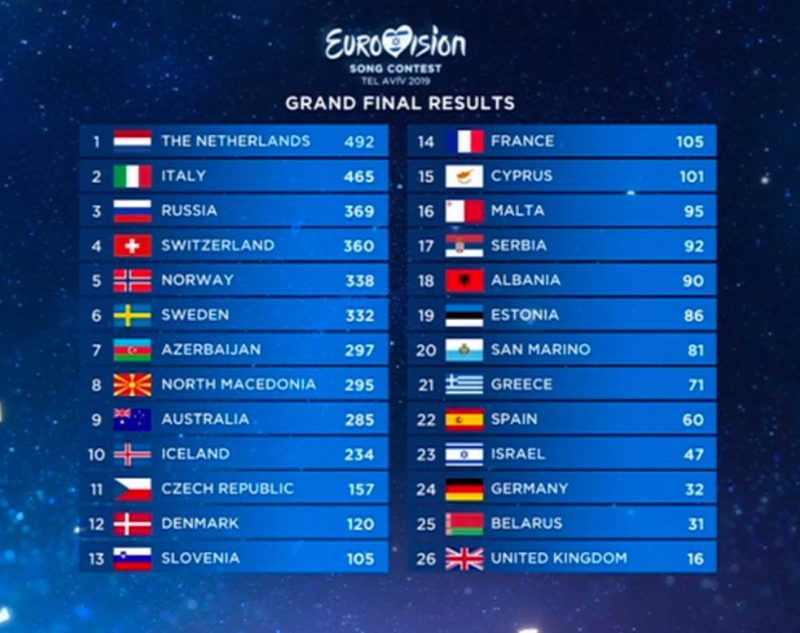Eurovision Song Contest: The Complete Voting Guide

Table of Contents
Understanding the Two Voting Systems
The Eurovision Song Contest utilizes a dual voting system, combining the expertise of professional juries with the passion of the viewing public. This blend aims to provide a fair and representative result, reflecting both critical appraisal and popular appeal.
Jury Voting
Jury voting involves panels of music professionals in each participating country. These juries, typically composed of five individuals with diverse musical backgrounds, are tasked with scoring each performance. Their selections aim for objectivity, offering a counterpoint to the potentially more subjective televoting results.
- Selection Process: Each country selects its jury independently, ensuring a broad range of musical expertise and preventing national bias. The identities of jury members are kept confidential until after the contest to prevent external influence.
- Scoring System: Each jury member awards points from 1 to 12, with 12 points for their favorite song and progressively fewer points for subsequent rankings. Only the top ten songs receive points from each jury. These individual scores are then aggregated to create a single jury score for each song.
- Potential Biases and Controversies: While aiming for objectivity, jury voting has faced criticisms regarding potential biases, either conscious or unconscious, based on national preferences, musical styles, or even personal connections. Such concerns have prompted the European Broadcasting Union (EBU), the organization behind Eurovision, to implement measures to enhance transparency and fairness.
Televoting
Televoting allows viewers across participating countries to vote for their favorite song using telephone calls, SMS text messages, or dedicated apps. This element brings the energy of the fans directly into the scoring process, adding a powerful layer of popular opinion to the results.
- Voting Mechanics: Viewers have a limited time frame during the broadcast to cast their votes. The EBU enforces strict rules to prevent voting manipulation or irregularities.
- Weighting and Influence: The relative weighting of televoting compared to jury voting has varied over the years. However, televoting generally accounts for a significant portion of the final score, often representing the broad public sentiment.
- Potential for Irregularities: Given the large-scale nature of televoting, the potential for manipulation or irregularities exists, although strict rules and monitoring are in place to mitigate these risks.
The Point Allocation System
The Eurovision Song Contest uses a clear point allocation system to determine the winner. Points are awarded by each participating country to its top ten favourite performances. This system ensures fairness and allows for a diverse range of musical tastes to be expressed in the final result.
- Point Distribution: Each country awards 12 points to its top choice, 10 points to its second choice, and so on, down to 1 point for its tenth choice. Zero points are given to the rest.
- Tallying the Scores: Both jury scores and televoting scores are tallied separately for each song. These two scores are then added together to produce a final score for each song.
- Calculating the Winner: The song with the highest combined score of jury and televoting points is declared the winner of the Eurovision Song Contest. This process maintains balance between professional critique and popular preference.
Voting Rules and Regulations
The EBU establishes detailed rules and regulations governing the voting process to maintain fairness and integrity. These rules are crucial for ensuring a transparent and unbiased outcome.
- National Restrictions: Generally, voting is restricted to residents of the participating countries to prevent external influence and to ensure the results reflect the views of the viewers within the participating nations.
- Vote Limits: To prevent any single person from disproportionately influencing the results, limits are generally set on the number of votes that can be cast from a single phone number or IP address.
- Transparency: The EBU strives for transparency in the voting process, although the specific details of individual jury scores are not always immediately available after the contest. Post-contest analysis often reveals the individual scores and further emphasizes transparency.
The History and Evolution of Eurovision Voting
The Eurovision Song Contest voting system has undergone several changes throughout its history, reflecting the evolution of broadcasting technology and adapting to address concerns about fairness and transparency.
- Early Systems: Initially, voting relied solely on national juries. The introduction of televoting marked a significant shift, bringing the viewers' preferences directly into the decision-making process.
- Significant Changes: The weight given to juries and televoting has changed throughout the years. The introduction of safeguards against potential manipulation or biases has been crucial in building the integrity of the system.
- Future Developments: The EBU regularly reviews and updates the voting rules to address any emerging challenges or to enhance the fairness and reliability of the process. Future developments may involve exploring new technologies or refining existing procedures.
Conclusion
Understanding the Eurovision Song Contest voting system is crucial for fully enjoying the competition. This guide has provided a comprehensive overview of jury voting, televoting, point allocation, and voting rules. By grasping these key elements, you can now appreciate the complexity and excitement behind each Eurovision result. So, dive deeper into the world of Eurovision and become a true voting expert! Keep exploring and learning more about the fascinating world of Eurovision Song Contest voting.

Featured Posts
-
 Fairness And Access Rethinking College Admissions Standards And Diversity Initiatives
May 19, 2025
Fairness And Access Rethinking College Admissions Standards And Diversity Initiatives
May 19, 2025 -
 Fsu And Clemsons Settlement Four Key Reasons For Victory
May 19, 2025
Fsu And Clemsons Settlement Four Key Reasons For Victory
May 19, 2025 -
 Trumps China Tariffs A 30 Levy Predicted To Last Until 2025
May 19, 2025
Trumps China Tariffs A 30 Levy Predicted To Last Until 2025
May 19, 2025 -
 Royal Mail Branded Stamp Price Hike Your Opinion Matters
May 19, 2025
Royal Mail Branded Stamp Price Hike Your Opinion Matters
May 19, 2025 -
 Ufc Vegas 106 Michael Morales Secures Another Performance Bonus
May 19, 2025
Ufc Vegas 106 Michael Morales Secures Another Performance Bonus
May 19, 2025
